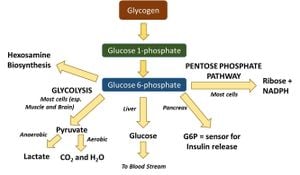A clinical trial has evaluated the combination therapy of regorafenib and sintilimab for patients with microsatellite stable (MSS) metastatic colorectal cancer (mCRC), seeking to provide new avenues for effective treatment options. Conducted at the Tianjin Medical University Cancer Institute and Hospital, this single-arm, open-label phase II trial aimed at addressing the unmet clinical needs for patients who have limited response to traditional therapies.
Colorectal cancer ranks as the third most prevalent cancer globally, with more than 1.9 million new cases annually. Notably, approximately 23% of these patients are diagnosed with metastatic disease, leading to adverse prognosis with low survival rates. Standard treatment regimens often fall short for those with MSS mCRC, as immune checkpoint inhibitors have limited efficacy for this subgroup. Noting this gap, researchers aimed to assess if the combination of the anti-angiogenic agent regorafenib and the immune checkpoint inhibitor sintilimab could yield favorable outcomes.
The study commenced when patients were enrolled at Tianjin Medical University Cancer Institute and Hospital, with treatments beginning between November 2020 and February 2023. A total of 103 patients were involved, and outcomes were analyzed as of June 7, 2023. The primary endpoint was overall survival (OS), with secondary endpoints including progression-free survival (PFS) and safety assessments.
Participants received regorafenib orally at 80 mg daily for three weeks, followed by one week off, alongside intravenous sintilimab at 200 mg every three weeks. Results indicated the median OS was 14.1 months, with PFS recorded at 4.1 months. Significantly, patients with RAS/RAF wild-type genotypes experienced longer survival (23.3 months) compared to mutant counterparts (12.1 months). This highlights the role of genetic makeup on the efficacy of combination therapies.
The combination therapy was reported to be well tolerated, with 96.1% of patients experiencing at least one treatment-related adverse event, primarily mild to moderate symptoms such as asthenia and gastrointestinal issues. There were no severe adverse outcomes leading to treatment discontinuation.
The investigation also embarked on comprehensive biomarker analyses, focusing on transcriptome sequencing and immunohistochemistry, to explore potential predictors of response. Findings emphasized the importance of the tumor microenvironment, indicating higher densities of immune cells (particularly CD8+ T cells) were correlated with improved treatment responses.
Notably, the trial suggests combining regorafenib and sintilimab could significantly improve OS and PFS rates compared to regorafenib alone, making it potentially favorable for MSS mCRC. "The combination regimen is well tolerated and offers a longer survival benefit, particularly in patients with RAS/RAF wild-type," indicated the authors of the article. This finding could reshape future treatment paradigms, emphasizing the need for well-designed trials to confirm these results.
Overall, as clinical research continues, insights from this study could drive future inquiries, enhancing treatment protocols for MSS mCRC patients. The promising outcomes warrant escalation of research efforts, seeking to validate these findings and possibly expand options for this challenging patient population.



